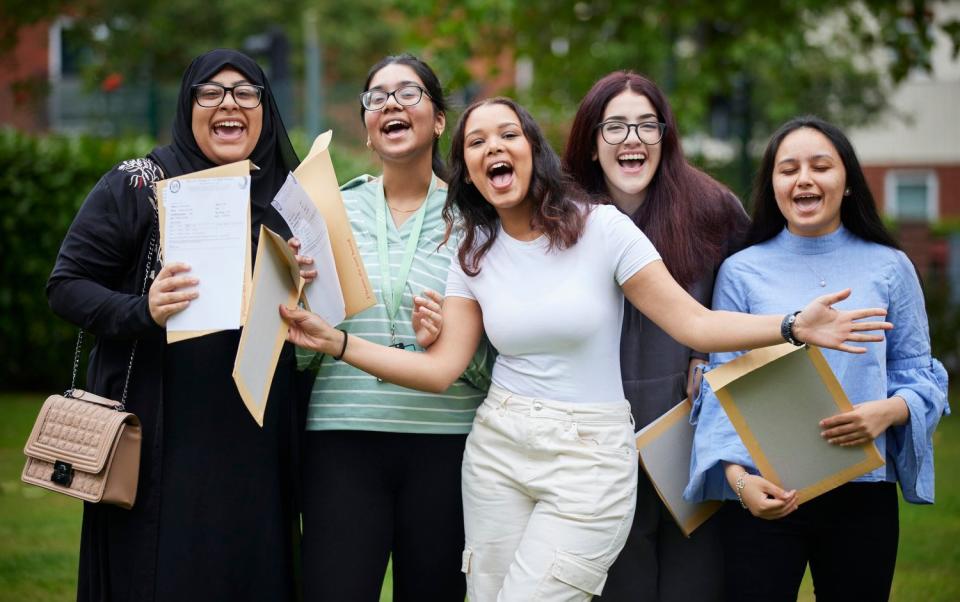One fifth of Russell Group university places awarded to overseas pupils

A fifth of places at Russell Group universities have been awarded to overseas students, it has emerged amid a scramble for places through clearing.
Tens of thousands of pupils received their A-level results on Thursday, but many were left disappointed.
Around 60,000 fewer top grades were awarded compared with last year as the Government began to clamp down on grade inflation.
The number of university applicants still looking for a place on Thursday rose by 35 per cent to almost 43,000 - the highest in a decade. Some top universities already had no places left through clearing by Thursday morning.
This year’s A-Level pupils suffered huge disruption to their education during Covid, and had never sat public exams before because their GCSEs were cancelled during the pandemic. This led to concerns that predicted grades may have been less accurate.
Boosting competition for places, data show that almost 34,000, or 22.4 per cent, of the 152,000 slots at the UK’s top universities have been given to international students who pay higher fees than home students.
International students used as ‘cash cow’
Their share, mostly made up of students from outside of the European Union, was up from 19.4 per cent last year. Meanwhile, the share of places awarded to home students fell to 77.6 per cent from 80.6 per cent a year earlier.
The findings have fueled calls for a cap on the number of places awarded to international students.
Robert Halfon, a Tory MP and the chairman of the education select committee, accused universities of using international students as a “cash cow” and said that priority should be given to British students.
He called on the Office for Students to launch a review and consider measures including a cap on overseas students. “While we should welcome overseas students, they should not be a substitute for making sure that British students get first dibs. I think they are seen as a cash cow and I think that’s wrong.”
Neil Roskilly, the former chief executive of the Independent Schools Association, called for a temporary cap on overseas students to stop domestic students being “squeezed out”.
The Office for Students said it has “signalled that over-reliance on fee income from international students may create financial risk for universities” and pledged to “continue to look at the impact of these recruitment patterns across the sector”.
Attracting overseas students ‘should be celebrated’
The Russell Group said that the number of UK 18-year-olds securing undergraduate places at top universities was up by 24 per cent on 2019, compared to an equivalent figure of six per cent for international students. “The fact that our universities attract people from around the world is an asset and should be celebrated,” a spokesman said.
Ucas said that around half of those aspiring students, or 20,360 applicants, were without a confirmed place because they had missed the required grades to make their offer. The proportion of A and A* levels at 36.4 per cent was still significantly higher than 2019, when 25.5 per cent of grades were A or A*.
A spokesperson for the Department of Education said it was a “myth that offering a place to an international student takes a place away from a student in the UK - places are offered to UK students and those from overseas in two separate streams. International students make a significant contribution to our universities which actually supports the creation of more places for domestic students, not fewer.”

 Yahoo Movies
Yahoo Movies 